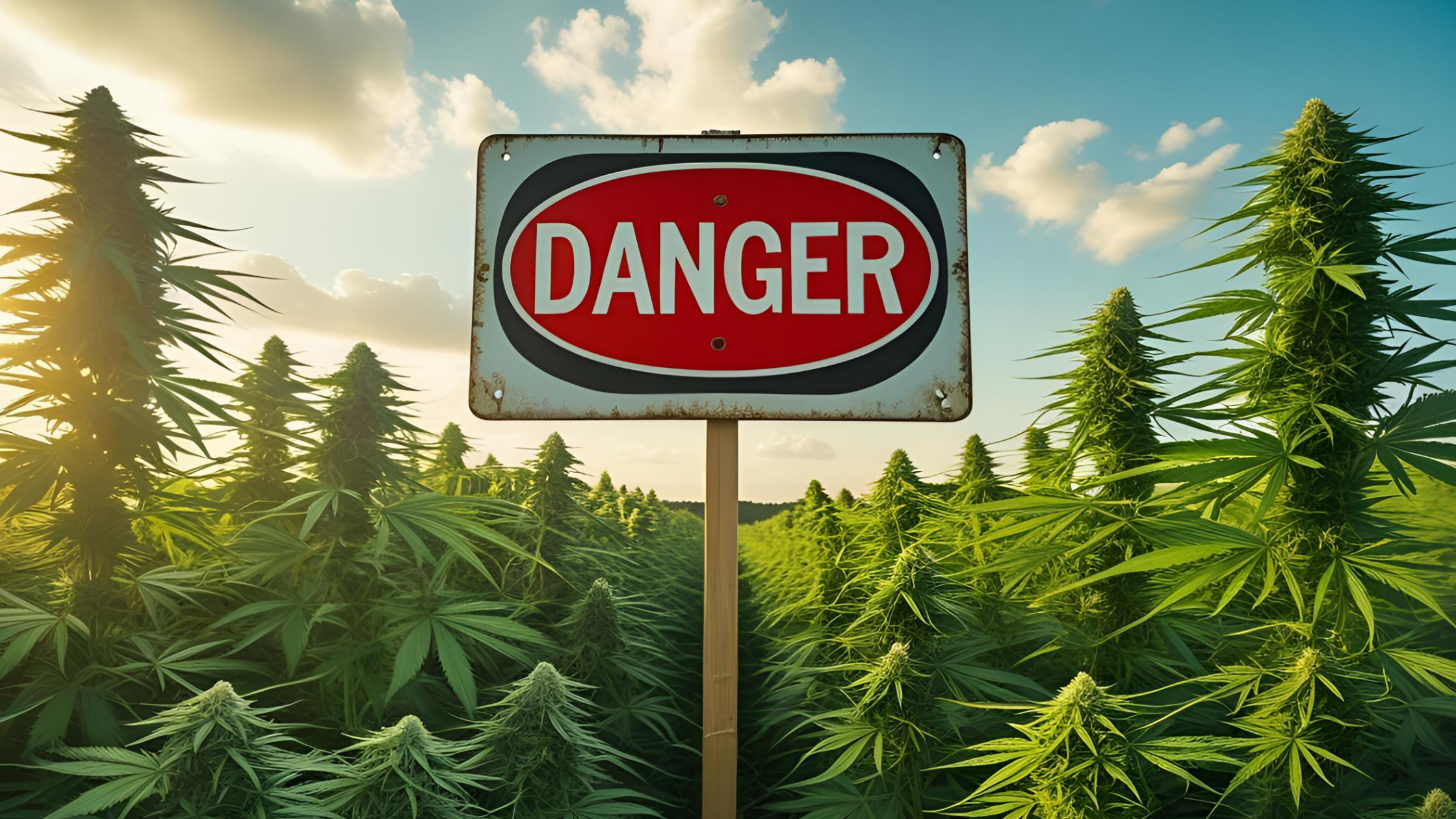
The 2026 Farm Bill Could Kill Hemp—Here's What You Need to Know
The hemp industry is under attack, and most Americans have no idea it's happening. Hidden within the FY2026 Agriculture Appropriations Bill are provisions that could destroy the legal hemp market overnight, eliminating thousands of jobs and forcing consumers toward dangerous black market alternatives.
This isn't just another regulatory adjustment—it's a calculated attempt to eliminate hemp as competition for big marijuana corporations. The changes are being fast-tracked through Congress with minimal public debate, and we have roughly 60 days before they could become law through a Continuing Resolution.
Here's everything you need to know about this hidden threat and what you can do to stop it.
What's Really in the 2026 Farm Bill?
The FY2026 Agriculture Appropriations Bill contains language that would fundamentally rewrite hemp regulations. These aren't minor tweaks—they're sweeping changes designed to eliminate most hemp products from the legal market.
The New Hemp Definition Changes Everything
Currently, hemp is defined as cannabis containing less than 0.3% Delta-9 THC. The proposed bill would expand this definition to include ALL THC isomers—Delta-8, Delta-10, THCA, and any other THC-related compounds.
This change might sound technical, but its impact would be devastating. Many perfectly legal hemp products contain trace amounts of these compounds naturally. Under the new definition, products that are safe and legal today would become federally prohibited tomorrow.
Zero Tolerance for Natural Compounds
The bill proposes banning any "quantifiable amount" of THC-like compounds. This zero-tolerance approach ignores the reality of hemp cultivation, where trace amounts of various compounds occur naturally during growth and processing.
Even non-intoxicating products that have helped millions of Americans could disappear from shelves. The legislation specifically targets cannabinoid-based wellness products while protecting only hemp used for fiber, grain, oilseeds, and research.
Synthetic Compound Ban Targets Innovation
The proposed legislation also bans synthetic or non-plant-derived cannabinoids, even if they contain less than 0.3% THC. This provision targets a growing segment of the hemp industry that has invested millions in research and development.
Companies that have spent years developing innovative products would see their investments wiped out overnight. The ban would stifle innovation and push America behind other countries in hemp research and development.
The Enforcement Power Grab
One of the most concerning aspects of the proposed legislation is transferring enforcement authority from the USDA to the U.S. Department of Health and Human Services (HHS).
This isn't just bureaucratic reshuffling—it's a strategic move that could fundamentally alter how hemp regulations are implemented and enforced.
Why This Transfer Matters
The USDA has agricultural expertise and understands the farming community's needs. Agency officials know the complexities of crop cultivation, seasonal variations, and the economic realities facing rural communities.
HHS, while valuable for health-related matters, lacks the agricultural background necessary to make informed decisions about hemp cultivation and processing. This transfer gives more control to bureaucrats who may not understand the farming community or small business needs.
Anti-Hemp Bias in Action
The enforcement shift represents a calculated strategy to place hemp regulation under officials who are more likely to implement restrictive policies. It removes agricultural science from the equation and replaces it with a health-focused approach that views hemp through a prohibition lens.
This bias could lead to enforcement actions that ignore agricultural realities and economic impacts on rural communities that have embraced hemp as an economic lifeline.
The Corporate Conspiracy Behind the Changes
The push for these restrictive hemp regulations isn't driven by safety concerns or agricultural science. It's about eliminating competition in the cannabis market to benefit large marijuana corporations.
Big Marijuana's War on Hemp
Large marijuana corporations view legal hemp as their biggest threat. Hemp products are often more affordable, more accessible, and subject to stricter quality controls than their marijuana counterparts.
By redefining hemp out of existence, these corporations can eliminate their most significant competitor and force consumers into their tightly controlled monopolies.
Small Business vs. Corporate Power
The hemp industry consists largely of small businesses, family farms, and innovative startups. These companies have invested heavily in compliance, quality control, and product development. They've created jobs in rural communities and provided consumers with safe, legal alternatives.
Many large marijuana corporations, meanwhile, have faced regulatory violations, failed safety tests, and engaged in questionable business practices. Yet they have the political influence and financial resources to push for legislation that benefits their interests at the expense of small businesses.
Testing and Quality Control Differences
Hemp testing laboratories are federally accredited and operate under strict guidelines. They don't have the same conflicts of interest that plague marijuana testing facilities, which are often owned by the same companies they're supposed to regulate.
This independent testing ensures that hemp products meet safety standards and contain the compounds listed on their labels. Eliminating this market would force consumers toward less regulated alternatives or black market products.
The Economic Devastation Ahead
If these provisions become law, the economic consequences would be immediate and severe across multiple sectors and communities.
Massive Job Losses
Thousands of Americans would lose their jobs immediately. Hemp farmers who have invested in equipment and land improvements would face bankruptcy. Processors, manufacturers, retailers, and service providers would all see significant losses.
Rural communities that have embraced hemp cultivation as an economic lifeline would be particularly hard hit. Many of these areas have struggled economically for decades, and hemp farming has provided new opportunities for growth and development.
Tax Revenue Collapse
Legal hemp businesses generate significant tax revenue for local, state, and federal governments. A study by the Hemp Industries Association found that the industry contributes over $1.9 billion annually to the U.S. economy.
Eliminating this industry would not only cost jobs but also reduce the tax base in communities that can least afford it. Rural counties that have benefited from hemp cultivation would lose critical revenue for schools, infrastructure, and public services.
Consumer Safety Risks
Pushing consumers toward unregulated alternatives poses serious safety risks. Black market products don't undergo the same testing and quality control measures as legal hemp products.
This could lead to contaminated or mislabeled products entering the market, putting consumers at risk. The regulated hemp industry has invested heavily in safety protocols—eliminating it would remove these protections.
The Timeline and Political Strategy
The proposed changes have already passed both House and Senate subcommittees, moving them closer to becoming law. The real danger lies in how these provisions could be implemented—through a Continuing Resolution that receives minimal public scrutiny.
The Stealth Approach
Congressional leaders attempted a similar maneuver in 2024, trying to slip anti-hemp language into must-pass legislation. Public pressure stopped that effort, but the same tactics are being used again.
The narrow window for action means that public awareness and engagement are crucial. Once these provisions are embedded in a Continuing Resolution, reversing them becomes exponentially more difficult.
The 60-Day Countdown
We have approximately 60 days before this legislation could be rushed through Congress without proper debate or public input. This tight timeline is intentional—it limits the industry's ability to mobilize opposition and educate the public about the consequences.
The hemp industry's survival depends on immediate action from consumers, businesses, and advocates who understand what's at stake.
What American Healthy Alternatives Is Doing
American Healthy Alternatives (AHA) and other advocacy organizations are working tirelessly to prevent these damaging provisions from becoming law. Their multi-pronged approach includes lobbying Congress, educating the public, and building coalitions of affected stakeholders.
Legislative Solutions
AHA is promoting several approaches that could address concerns about hemp while preserving the industry's viability:
-
Age restrictions on certain hemp products
-
Enhanced labeling requirements
-
Improved testing standards
-
Better enforcement of existing regulations
These solutions would address legitimate concerns without destroying an entire industry that supports thousands of families.
Public Education Campaign
Many Americans don't understand the difference between hemp and marijuana, or the benefits that legal hemp provides. AHA's education campaigns help the public make informed decisions about hemp policy.
The organization is working to highlight hemp's agricultural benefits, economic impact, and safety record compared to unregulated alternatives.
Taking Action to Protect Hemp
The hemp industry's survival depends on immediate action from people who understand what's at stake. Here's what you can do to help:
Contact Your Representatives
Call or write to your senators and representatives. Explain how the proposed changes would affect you, your community, or your business. Personal stories are often more effective than abstract policy arguments.
Use specific talking points about job losses, economic impact, and consumer safety. Ask your representatives to oppose anti-hemp provisions in the FY2026 Agriculture Appropriations Bill.
Support Advocacy Organizations
Groups like American Healthy Alternatives are fighting these provisions through lobbying, litigation, and public education. Your support helps fund these crucial efforts.
Consider making a donation, volunteering your time, or sharing their content on social media to amplify their message.
Raise Awareness
Share information about this threat with friends, family, and social media networks. Many people don't know about the danger to hemp, and awareness is the first step toward action.
Use the hashtag #SaveHemp to connect with others who are fighting for the industry's survival.
Engage in the Political Process
Vote in elections at all levels of government. Support candidates who understand the importance of hemp and small business rights.
Research candidates' positions on hemp policy and hold them accountable for their votes on related legislation.
The Stakes Have Never Been Higher
The hemp industry stands at a crossroads. The decisions made in the coming weeks will determine whether this promising sector continues to grow and innovate, or whether it becomes another casualty of corporate influence and political maneuvering.
Hemp represents more than just another agricultural product—it's a symbol of American entrepreneurship, rural revitalization, and consumer choice. The fight to protect it is really a fight to protect the values that make our economy strong and our communities vibrant.
The proposed changes in the 2026 Farm Bill would eliminate consumer choice, destroy small businesses, and hand control of the cannabis market to large corporations with questionable track records. This isn't about public safety—it's about corporate greed.
Don't Let Hemp Die Behind Closed Doors
The time for action is now. The hemp industry's future—and the livelihoods of thousands of Americans—depends on what we do in the next 60 days.
Contact your representatives. Support American Healthy Alternatives. Share this information with everyone you know. The hemp industry has shown it can operate safely and successfully under proper regulation.




